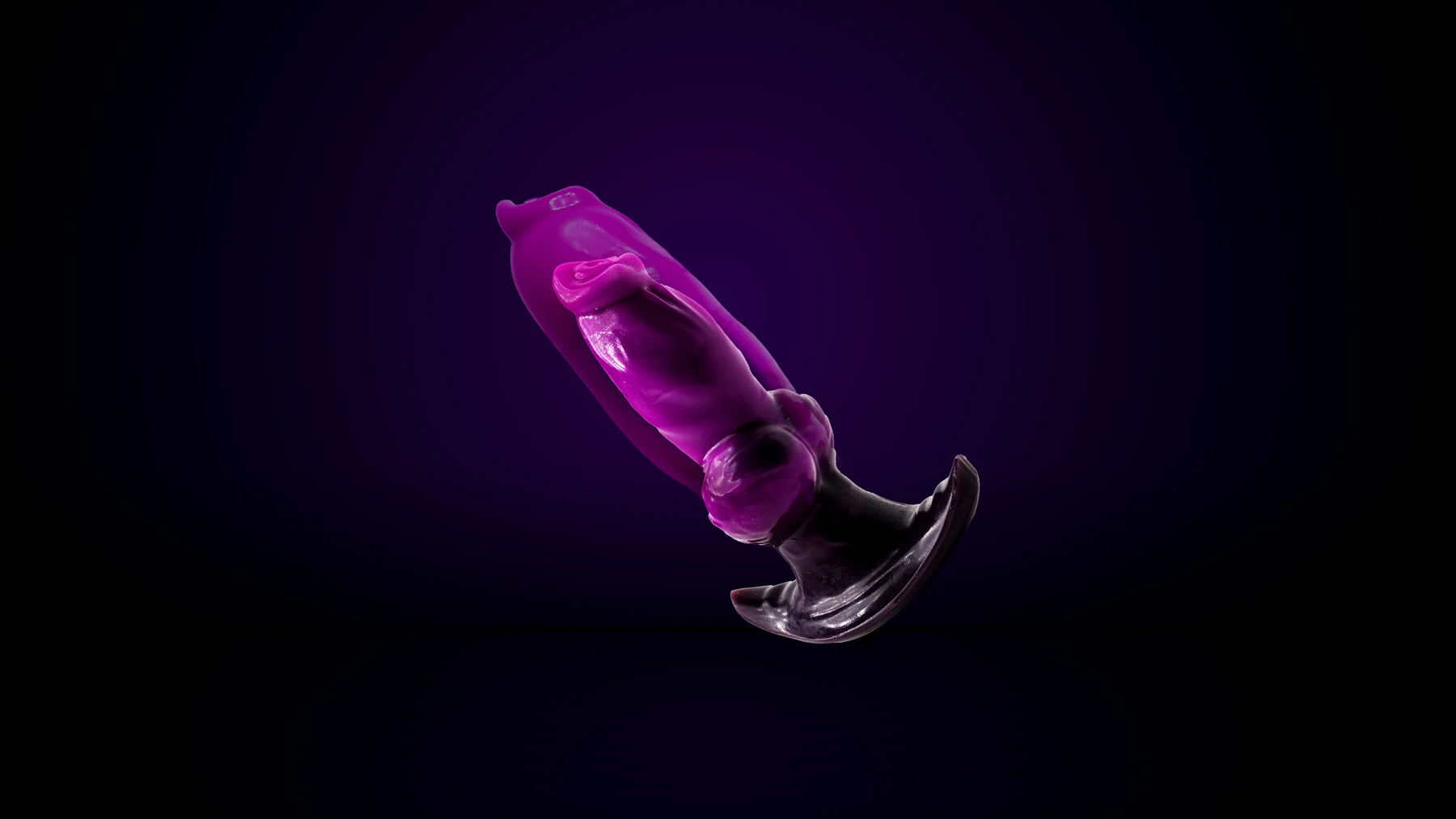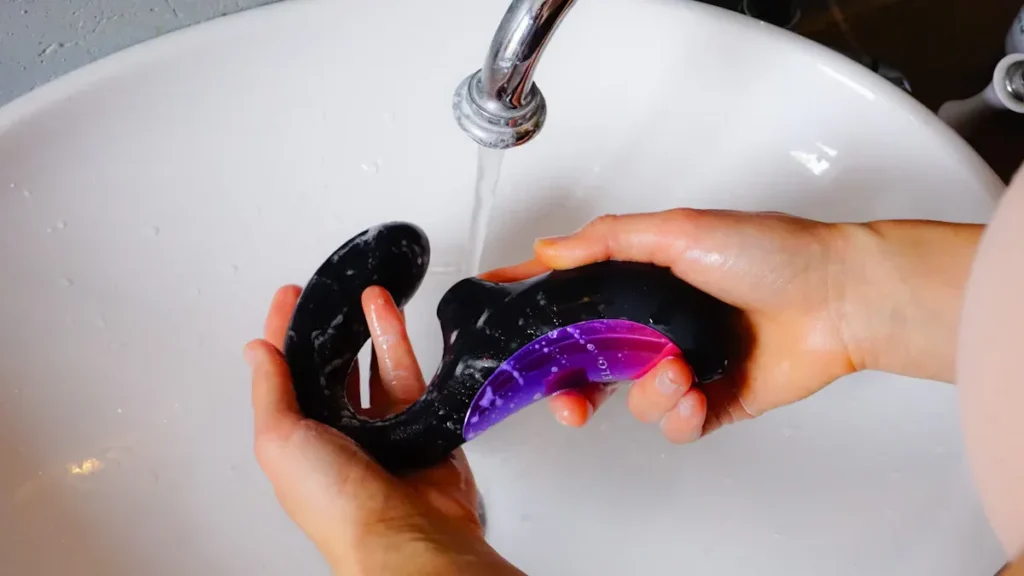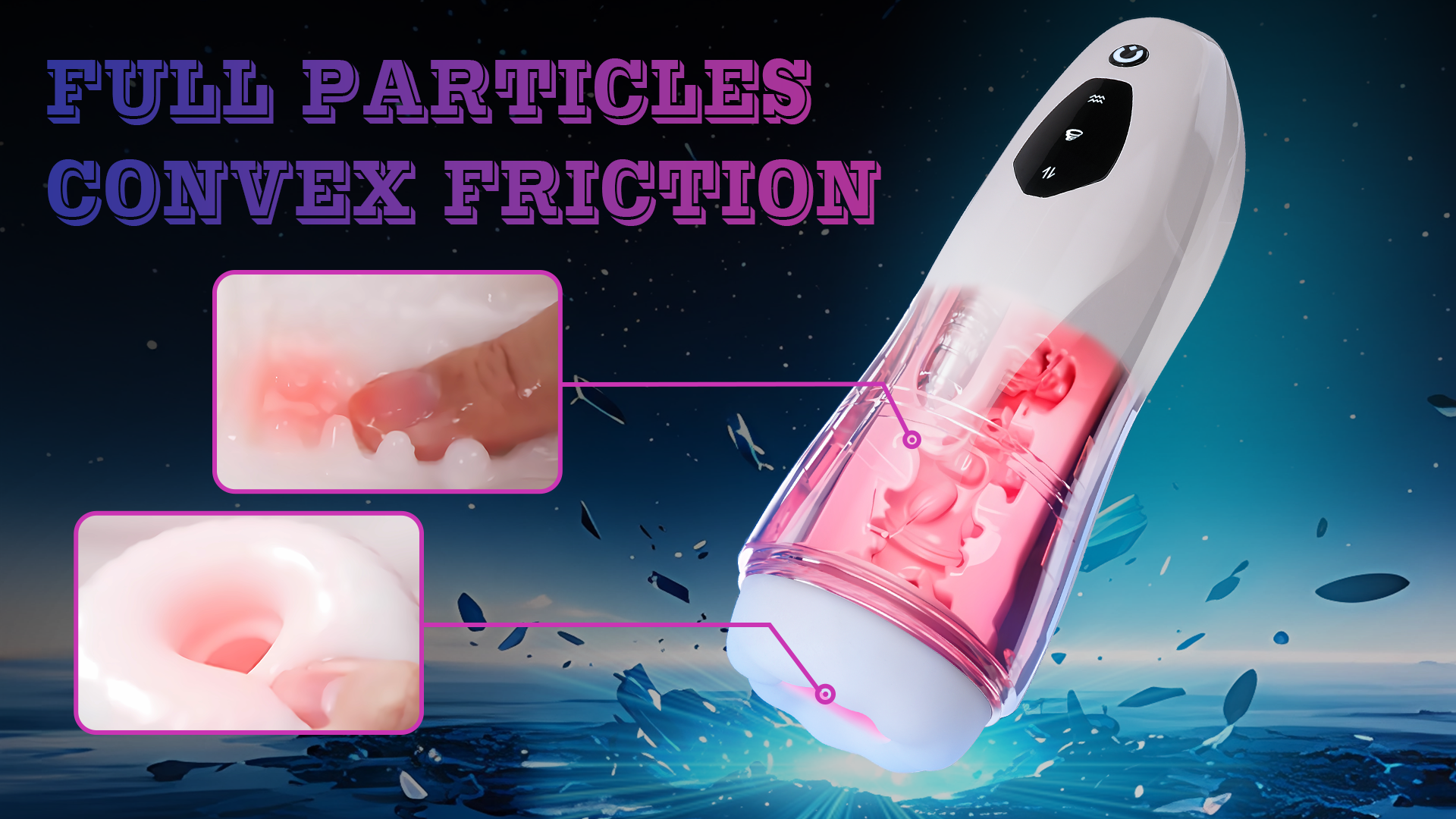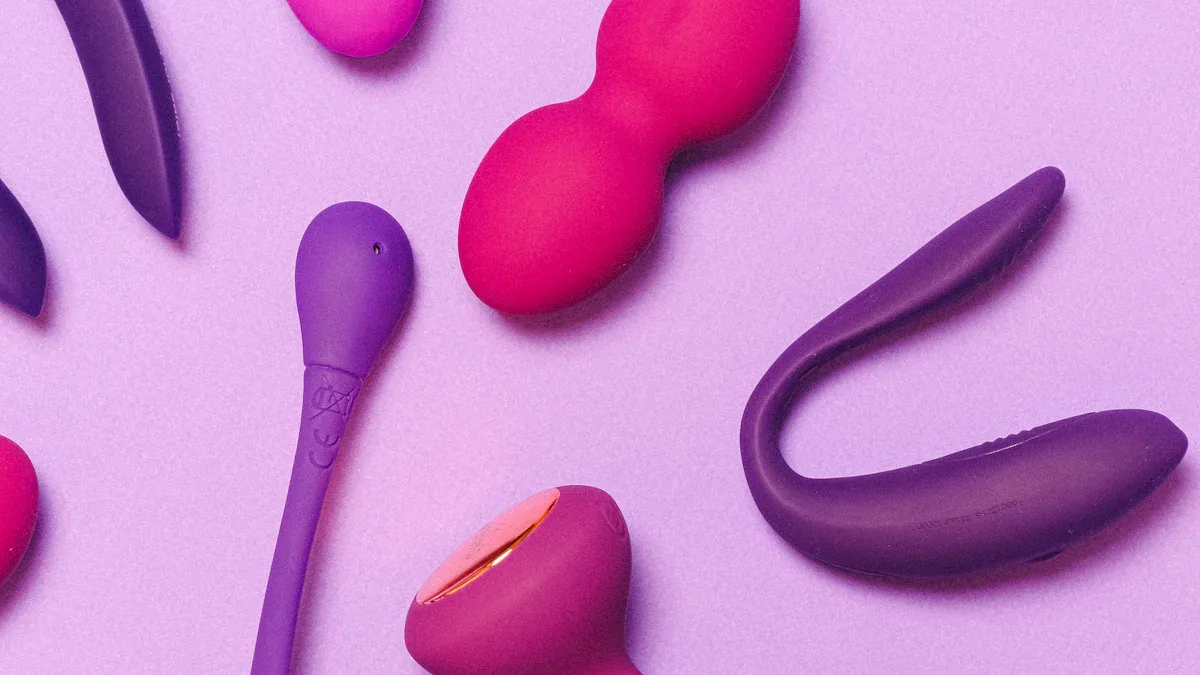PVC Dildos and Your Health What to Consider
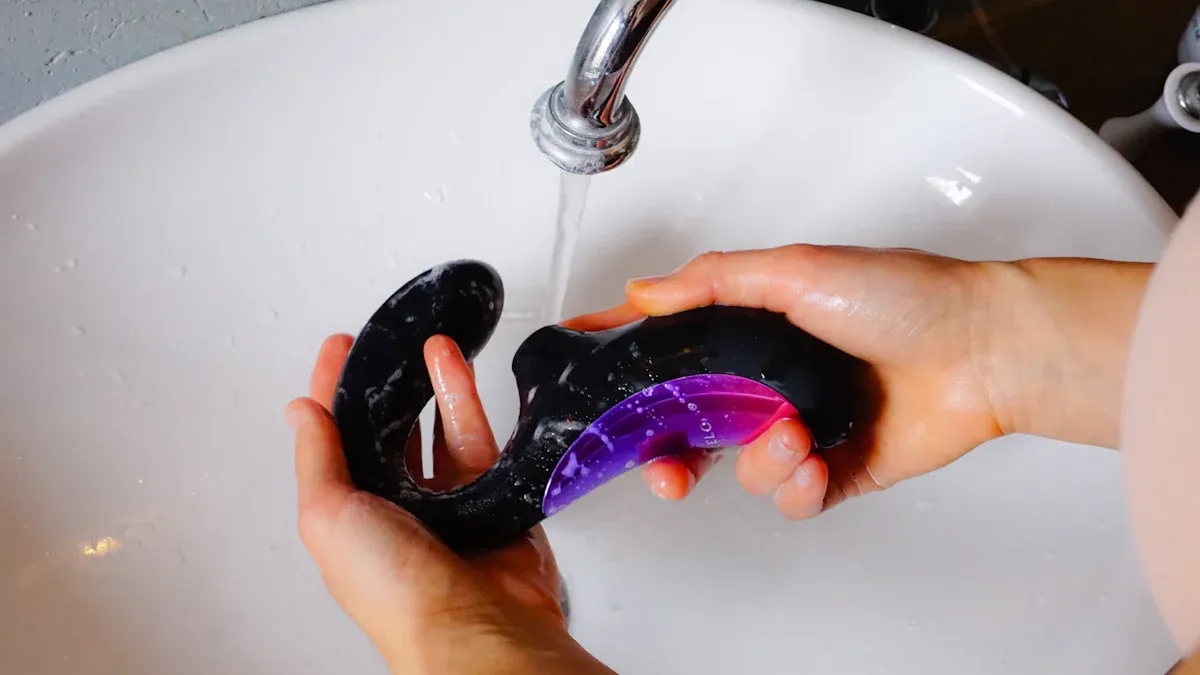
When you pick pvc dildos, you may ask if they are safe. Studies show pvc sex toys can let out phthalates and microplastics when used. These chemicals can hurt your body. They may cause hormone changes or harm your reproductive organs. Porous pvc can also hold bacteria. This makes infection more likely. If your pvc dildo smells strong or feels sticky, it may be breaking down. There are safer choices. Always think about your health before using any dildo, like Vibrating Dildo, Heated Dildos, or Dildo with Camera.
PVC Dildos Overview
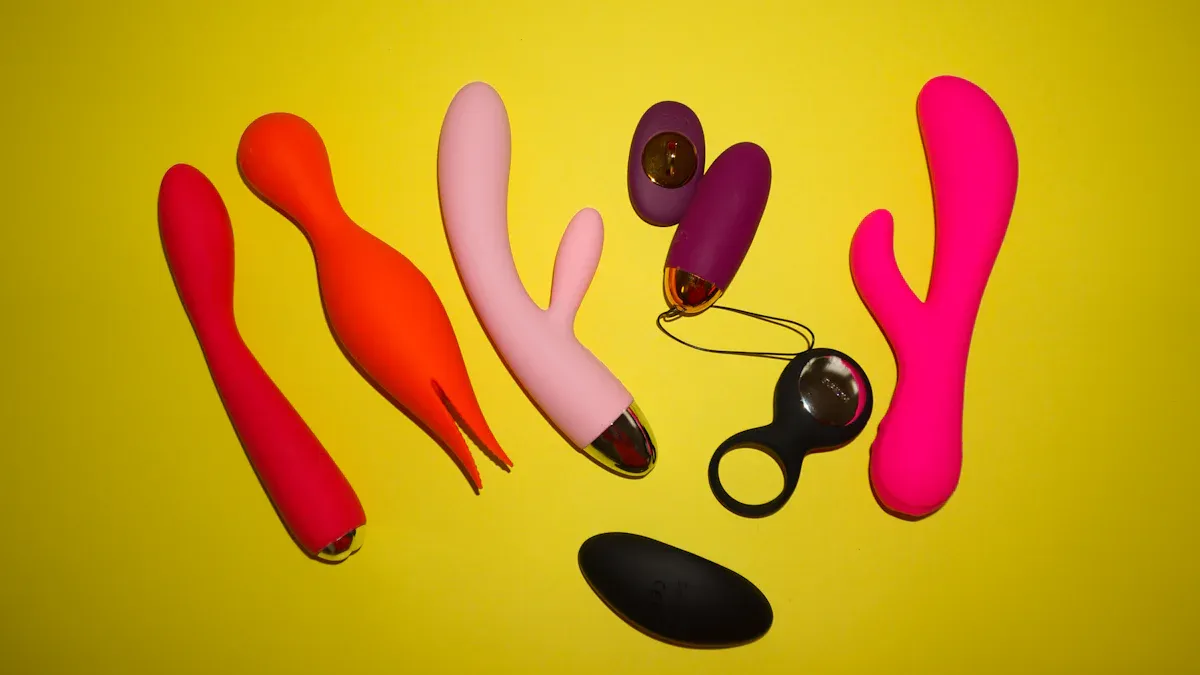
What Is PVC?
You may see the term PVC when you shop for sex toys. PVC stands for polyvinyl chloride. This is a type of plastic that many companies use to make different products. You find PVC in pipes, flooring, and even some clothing. In the world of sex toys, PVC is popular because it is cheap and easy to shape.
PVC sex toys are made from a base polymer called polyvinyl chloride. To make the material soft and bendable, manufacturers add plasticizers. Most often, these plasticizers are phthalates. Over 90% of phthalates go into softening PVC. These chemicals help make the toy flexible and clear. However, PVC also contains chlorine. This can create toxic byproducts during its life cycle. Even if a company says their PVC sex toys are phthalate-free, they may use other plasticizers that are not always safe. The base PVC polymer itself is not safe for your body.
Note: You should know that manufacturers do not always share what chemicals they use in their PVC sex toys. This makes it hard to know if a toy is truly safe.
Why Use PVC in Sex Toys?
You might wonder why so many companies choose PVC for dildos. The answer is simple. PVC is cheap, easy to mold, and can be made in many colors and shapes. This lets companies offer many types of dildos at low prices. You will see both soft and hard PVC in sex toys. Soft PVC is more common in dildos because it feels flexible and lifelike. Hard PVC is stiff and not as comfortable for most people.
Here is a quick comparison:
Type of PVC | Feel | Common Use in Sex Toys |
|---|---|---|
Soft PVC | Flexible | Dildos, sleeves |
Hard PVC | Rigid | Handles, outer shells |
PVC dildos can look fun and come in many styles. You may find a dildo that fits your taste and budget. Still, you should think about the health risks before you choose PVC sex toys. Many people pick PVC dildos because they cost less, but you need to weigh the price against your safety.
Health Risks of PVC
Phthalates and Chemicals
When you use pvc sex toys, you might not know what chemicals touch your skin. Most pvc dildos have phthalates in them. These chemicals make pvc soft and bendy, but they can leak out when you use the toy. Phthalates are called endocrine disruptors. They can mess with your hormones. Studies show phthalates can cause problems like:
Testicular injury and liver damage in animals
Liver cancer and birth defects
Lower sperm quality and reduced fertility
Hormone changes and reproductive system damage
Higher risk of diabetes and insulin resistance
Erectile dysfunction and possible breast cancer links
You might not see these chemicals on the label. The sex toy industry does not have strict rules for labels. Many pvc sex toys have a lot of phthalates, sometimes up to 60% by weight. This is much more than what is allowed in other things. Even if you see “phthalate-free pvc,” there may be other plasticizers, and their safety is not always known. Chemicals that leak out can also cause skin problems, rashes, and burning. You should always think about health risks before picking a pvc dildo.
Tip: To lower your risk, choose toys from trusted brands that say they are phthalate-free and tested for safety.
Porosity and Infection
Porosity is another big worry with pvc sex toys. Pvc is porous. This means it has tiny holes you cannot see. Bacteria, mold, and fungus can hide in these holes. When you use a pvc dildo, it is hard to clean it all the way. Even after washing, germs can stay inside the toy. This makes infections more likely, especially if you use the dildo a lot or share it.
Porous toys like pvc dildos can also leak chemicals more easily. The more porous the toy, the easier it is for bacteria to grow. Medical-grade materials like silicone or glass do not have this problem. They are nonporous and much safer for your health. If you want to avoid these risks, you should think about the good and bad sides of pvc sex toys before you buy one.
Degradation and Safety
Pvc sex toys do not last forever. Over time, the material can break down. This is called degradation. When a pvc dildo starts to break down, you might notice:
A strong chemical smell
Sticky or oily feel
Color fading or changing
Cracks or changes in shape
These signs mean the toy is not safe to use anymore. Broken down pvc can let out even more phthalates and other bad chemicals. This can cause skin problems, burning, or rashes. The porous nature of pvc makes it even harder to keep clean as it gets older. Even “phthalate-free pvc” can have other harmful things like phenol or cadmium. If you see any of these signs, you should get a new dildo right away.
Note: Always check your pvc sex toys for changes before you use them. Your safety depends on using toys that are in good shape.
The health risks of pvc are real. You can face health risks from chemicals, infection, and the toy breaking down. Always think about the risks and benefits of pvc sex toys before you use them.
Dildo Safety Tips
Using PVC Sex Toys Safely
You want to lower the risks when using pvc sex toys. The best way to protect yourself is to use a condom over your dildo every time. Condoms help reduce the chance of infection and make cleanup easier. However, condoms do not block all chemicals from pvc. Some oils in pvc can break down latex condoms, so you should check for damage before use. Never share your pvc dildo with others, even if you use a condom. Sharing increases the risk of spreading germs and infections. Always choose high-quality, phthalate-free products from trusted brands. If you want better safety, pick non-porous toys made from medical-grade silicone, glass, or stainless steel. These materials are easier to clean and more hygienic.
Tip: Avoid porous materials like pvc, TPE, or jelly toys. They trap bacteria and harmful chemicals, making them hard to clean.
Cleaning and Maintenance
To keep your pvc sex toys as safe as possible, you need to clean your pvc sex toys before and after each use. Use warm water and mild, fragrance-free soap. Do not use bleach, alcohol, or strong cleaners, as these can damage the pvc. You should never boil or put your pvc dildo in the dishwasher. These methods do not work for porous materials and can ruin the toy. Let your dildo air dry for at least 24 hours before storing it. This helps reduce germs. Remember, you cannot fully disinfect pvc sex toys because of their porous nature. Non-porous toys are much easier to keep hygienic.
When to Replace
Check your pvc dildo often for signs of wear. Replace it if you notice a strong chemical smell, sticky surface, color changes, or cracks. These signs mean the material is breaking down and could release more harmful chemicals. If your dildo feels softer than before or leaves color on a cloth, it is time to get a new one. Regular inspection is key to dildo safety. Most experts suggest replacing porous toys like pvc every 10 to 12 months, even if they look fine. Your health depends on using toys that are in good condition.
Note: Some risks with pvc sex toys cannot be removed, even with careful cleaning. Choosing and using pvc sex toys safely means knowing when to replace them and considering safer alternatives.
Body Safe Sex Toys Alternatives
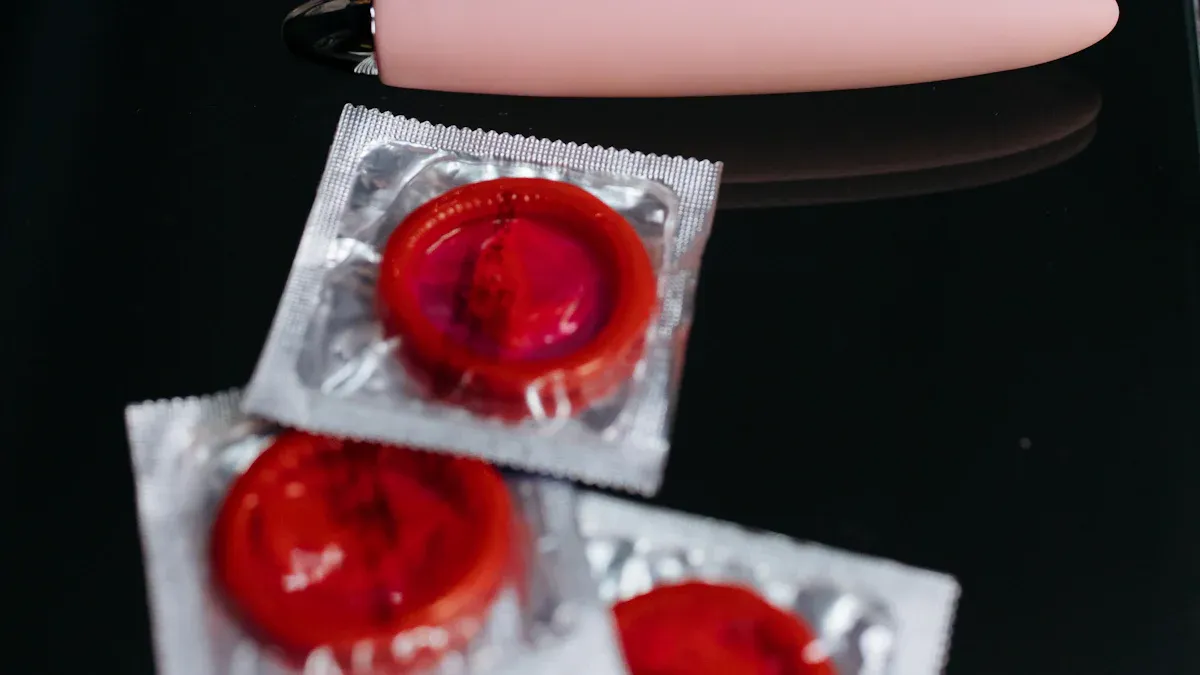
If you want to stay safe, you can pick other sex toys instead of pvc sex toys. Many doctors and health groups say to use body safe sex toys made from special materials. These include medical-grade silicone, medical grade glass, and stainless steel toys. These materials do not have tiny holes. They do not cause allergies. They are simple to clean. They help keep you healthy.
Silicone Options
Silicone toys are very popular body-safe sex toys. Medical-grade silicone is a safe material for your body. It does not let germs hide inside. You can wash silicone toys with soap and water. You can even boil silicone toys that do not have motors to make them extra clean. Platinum-cured silicone is the best kind. It does not have holes, does not cause allergies, and does not smell. Silicone toys feel soft and bendy, which many people enjoy. You should use water-based lube with silicone toys. Do not use silicone lube because it can hurt the toy.
Tip: Pick medical-grade silicone toys from good brands for the best safety and comfort.
Glass and Metal Choices
You can also choose medical grade glass or stainless steel toys as safe options. These toys do not have holes and are very easy to clean. Borosilicate glass is strong and safe to use. You can use any kind of lube with glass toys. Stainless steel toys are also tough and clean. Both glass and metal toys can be boiled or put in the dishwasher to clean them. You can make them warm or cold for new feelings. Always look for cracks in glass toys before you use them.
Here is a quick comparison:
Material | Safety Characteristics | Notes and Recommendations |
|---|---|---|
Medical Grade Silicone | Non-porous, hypoallergenic, easy to clean, heat resistant | Use water-based lubricants; can be boiled or dishwasher safe (non-motorized) |
Borosilicate Glass | Non-porous, very strong, easy to sterilize | Safe with any lubricant; smooth surface; check for cracks before use |
Stainless Steel | Non-porous, hygienic, durable, temperature retaining | Compatible with all lubricants; long-lasting; safe to store with other toys |
Comparing Materials
Body-safe materials like silicone, glass, and stainless steel are better than PVC. They do not let germs grow inside. They are easy to clean and last a long time. Medical-grade silicone toys are soft and bendy. Glass and metal toys are hard and can be used for hot or cold play. PVC toys cost less and are bendy, but they have holes and can hold germs. They might also have bad chemicals. Body-safe sex toys cost more, but they keep you healthy. You get better safety, hygiene, and feel calm when you use these safe materials for sex toys.
Many people feel safer and happier when they use body-safe sex toys made from medical-grade silicone, glass, or stainless steel. These choices give you more options and better health.
When you pick a dildo, think about your health first. Doctors say pvc sex toys can let out phthalates, bacteria, and mold. These things can mess with your hormones and cause infections. They can also make unsafe chemicals.
Phthalates in cheap dildos might hurt your hormones and make it harder to have kids.
Porous toys hold germs, so cleaning them is tough.
If your toy smells strong, it could mean it is not safe.
You can stay safer by choosing body-safe toys like silicone or glass. Always look at your dildo for damage and care about your health most.

